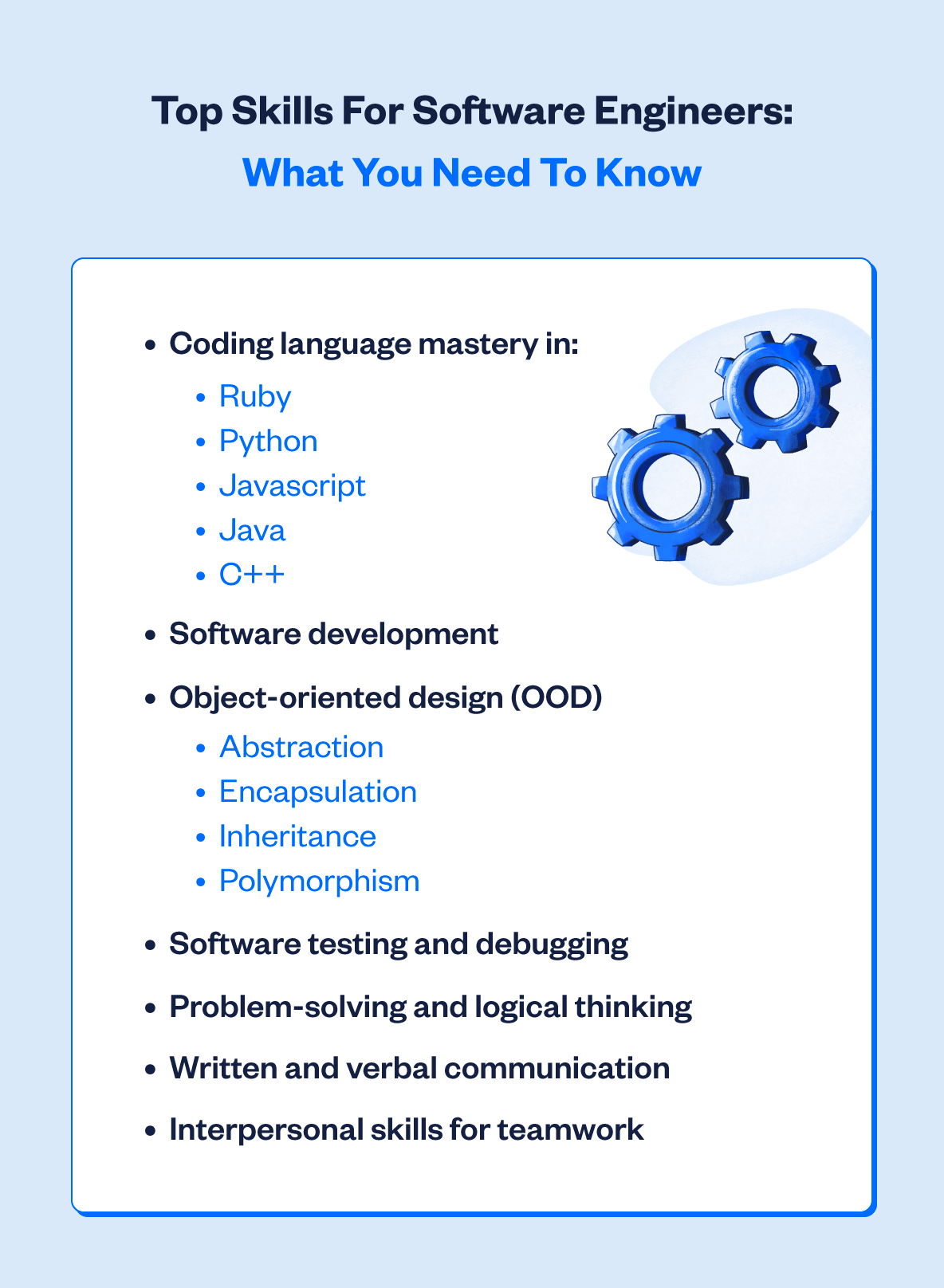Why need to know about software engineering?
Software engineering is a fast-growing and increasingly important field in the world of technology. It is the practice of using engineering principles and practices to design, develop, maintain, and test software applications. Knowing about software engineering can help you make better decisions when it comes to developing software solutions. It can help you better understand the development process and how it works. Additionally, it can help you identify and develop solutions to potential problems before they become bigger issues. Knowing about software engineering can also help you gain a competitive edge in the job market as software engineering is a highly sought-after skill.
1. What is Software Engineering?
Software Engineering is the application of engineering principles to the design, development, maintenance, testing, and evaluation of software. It involves a systematic approach to the production of reliable and efficient software solutions. The process includes the identification of user requirements, the design of the software architecture, the realization of the software, its integration into the system, and its maintenance and support over its entire life cycle. Software engineering can help ensure quality, reliability and cost-effectiveness in the development of software systems.
2. What Skills do Software Engineers Need?
Software engineering is an ever-evolving field, and the skills that software engineers need to succeed keep changing. To ensure success, software engineers need to possess a wide range of technical and non-technical skills, such as problem-solving, critical thinking, communication, collaboration, and teamwork. They should also be comfortable with coding languages, software development tools, and software design principles. Furthermore, software engineers should always stay up-to-date on the latest technologies and trends in the industry, as well as understand the basics of user experience design and the principles of software architecture. In short, software engineers need to have the right mix of technical and non-technical skills to excel in their field.
3. Programming Languages and Tools Used in Software Engineering
Software engineering is a complex field with many aspects to consider when developing software. Programming languages and tools are two important components that must be taken into account. Programming languages allow developers to create the code that will bring the user’s ideas and requirements to life. Tools, on the other hand, are used to help developers manage and debug the code they write. Popular programming languages used in software engineering include Java, Python, C#, and JavaScript, while tools like JUnit, Eclipse, and IntelliJ are commonly used for debugging and testing. Knowing the right tools and languages for the job is essential to creating software that meets customer needs and expectations.
4. The Benefits of Software Engineering
Software engineering is a field of engineering that deals with the design, development, maintenance, testing, and evaluation of software. It is a discipline that applies engineering principles and techniques to the design, development, and maintenance of software applications. By taking a software engineering approach, one can optimize the process of developing software and ensure that the product is of the highest quality. The benefits of software engineering include improved reliability, scalability, maintainability, and cost savings. Additionally, software engineering allows developers to reuse existing code, create more efficient code, reduce the time to market, and improve the overall user experience. With the help of software engineering, businesses can create high-quality software applications quickly and efficiently.
5. The Challenges of Software Engineering
Software engineering is a complex field that requires a high level of technical knowledge and problem-solving skills. It is a field that is constantly evolving, as new technologies and methods are developed to solve more complex challenges. As a software engineer, one must be able to quickly and accurately identify the root cause of a software problem and then design a solution that meets the desired objectives. Additionally, software engineers must also be able to work effectively with other professionals, such as software architects, product managers, and UX designers, in order to create a successful end product. The challenges of software engineering are varied and can be difficult to face, but with dedication and continuous learning, the rewards can be immense!
_1642083611.jpg)
6. How to Learn Software Engineering
Software engineering is a rapidly growing field, and it can be a great career option for individuals who are interested in technology and coding. Learning software engineering can be a challenging process, but there are some basic steps you can take to get started. First, you should have a good foundation in mathematics and computer science. You should also have a good understanding of programming languages, such as Java, C++, or Python. Then, you should take the time to familiarize yourself with the different software engineering tools and methods, including object-oriented programming and software design principles. Finally, you should practice, practice, practice. This could involve coding on your own, working on open source projects, or taking online courses to hone your skills. With dedication and hard work, you can become a skilled software engineer.
7. Career Options for Software Engineers
Software engineering is an ever-evolving field with a wide range of career options available. With the emergence of new technologies and changing trends, software engineers have the opportunity to specialize in areas such as mobile application development, cloud computing, data science, and more. For those looking to pursue a career in software engineering, there are plenty of paths to choose from. From developing mobile applications to creating software for the cloud, software engineers can find plenty of opportunities to apply their skills in the tech industry. Additionally, software engineers can also find jobs in other industries such as finance, healthcare, and education. Whatever the path, software engineers have the ability to shape the future of technology and make a lasting impact on the world.
8. Software Engineering in the Future
Software engineering is projected to be one of the most rapidly growing and in-demand fields of the future. With advances in technology, software engineering is becoming increasingly important and necessary for the development of complex software systems. In the near future, software engineers will need to be prepared to work on projects that involve artificial intelligence, virtual reality, and the Internet of Things. Additionally, software engineers will need to remain up-to-date on the latest technologies, trends, and best practices in order to remain competitive in the field. As the demand for technology increases and technology develops, software engineering will become an essential part of our lives, and software engineers will be at the forefront of developing the future of computing.
9. The Impact of Software Engineering
Software engineering is a rapidly evolving field, and its impact on our world is undeniable. Software engineering has revolutionized the way we live, work, and play. It has enabled us to create products and services that are more efficient, reliable, and secure. It has also enabled us to produce and distribute digital content with unprecedented speed and reach. Software engineering has also enabled us to develop mobile applications that can be accessed anywhere and anytime. By leveraging the power of software engineering, businesses can gain competitive advantages, while individuals can benefit from increased convenience and productivity. Ultimately, software engineering has dramatically changed the way we interact with technology, and it is only continuing to grow and evolve.
10. Industry Trends in Software Engineering
Software engineering is constantly evolving and adapting to the new technologies that enter the market. It is important to stay up-to-date on the latest industry trends in software engineering so you know what technologies to use to create the best product for your customer. Understanding the new trends, from AI and machine learning to cloud computing and big data, is essential to staying ahead of the competition and creating a successful product. The software engineering industry is always changing, so staying informed on the latest trends is key to staying ahead of the curve.
11. How to Get Started in Software Engineering
Software engineering is a rapidly growing field, offering exciting opportunities for those who wish to develop and maintain computer programs. To get started in software engineering, you must first understand the fundamentals of computer programming and software design. This means having a strong understanding of coding languages like Java, C++, and Python, as well as knowledge of software development processes and best practices. Additionally, you should have an understanding of data structures, algorithms, and software architecture. Once you’ve obtained a basic understanding, it’s important to stay on top of advances in the field to ensure your skills remain current. You can do this by taking advantage of online classes, attending conferences, or network with other engineers. With a solid understanding of the fundamentals, and a commitment to staying up-to-date, you’ll be ready to start your journey into the world of software engineering.
FAQs About the Why need to know about software engineering?
1. What is software engineering?
Answer: Software engineering is a professional discipline focused on the application of engineering principles to the design, development, and maintenance of software.
2. What skills are needed for software engineering?
Answer: Common skills needed for software engineering include problem-solving, critical thinking, and programming expertise.
3. What are the benefits of software engineering?
Answer: Software engineering offers the potential to build successful software products faster, more securely, and more cost-effectively.
4. Is software engineering a good career choice?
Answer: Yes, software engineering is an excellent career choice for those with the right skills and drive. With the right knowledge, software engineers can find rewarding and lucrative jobs.
5. What types of jobs are available for software engineers?
Answer: Software engineers can find jobs in both large and small companies, working on a wide range of projects from mobile apps and web development to enterprise software and embedded systems.
Conclusion
Software engineering is a critical field of study for anyone interested in the development and maintenance of computer systems. It is the practice of creating and maintaining programs that are both reliable and efficient. Knowing Software Engineering helps us develop applications, software, and systems that are effective and secure. It also helps us to create architectures that can support the current and changing needs of users. Understanding the principles of software engineering helps us create better and more robust solutions to meet the needs of the users.




